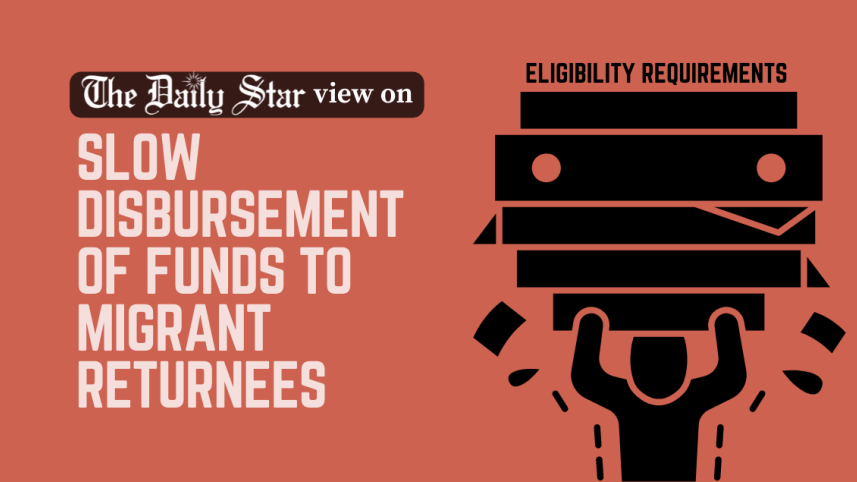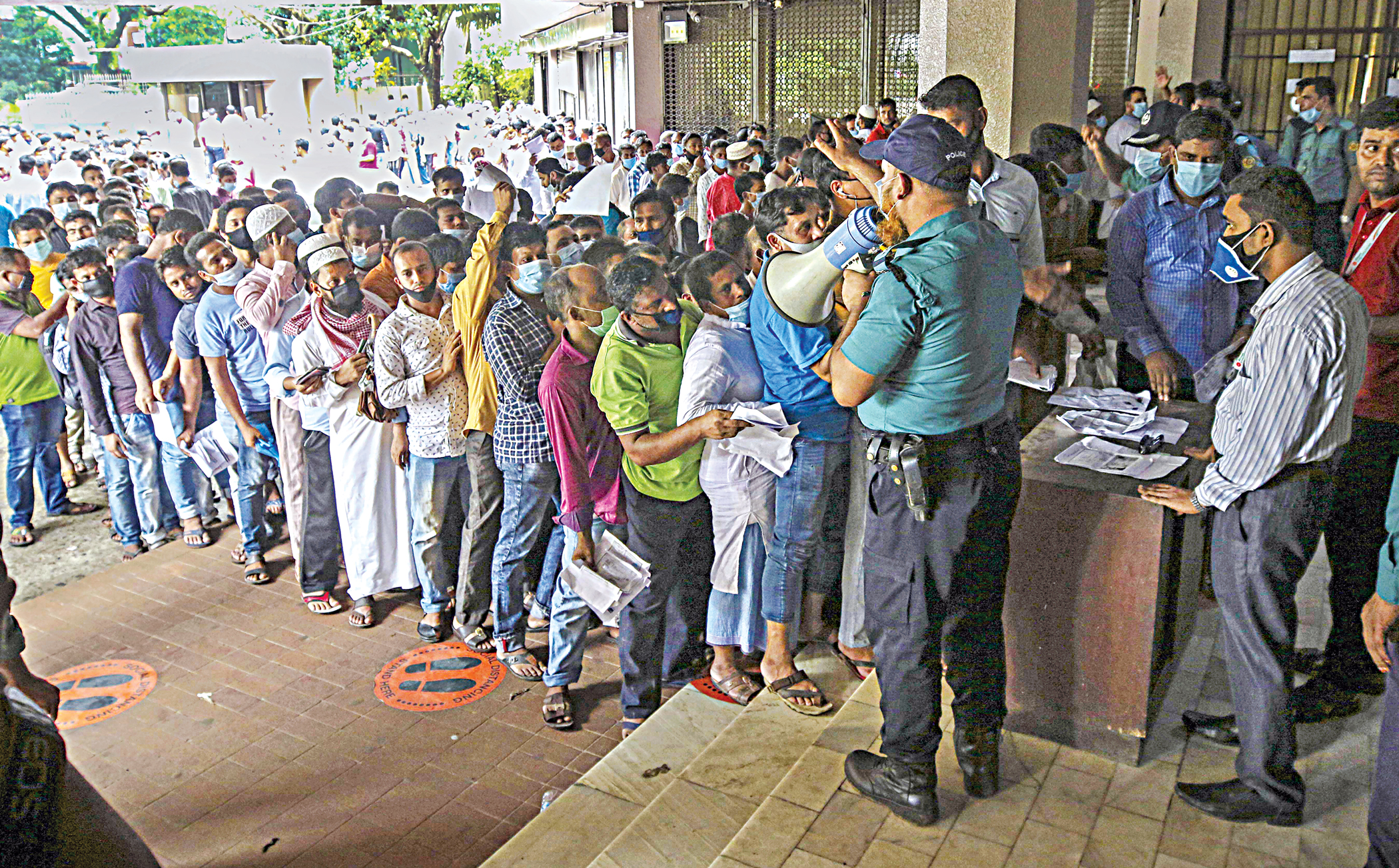Simplify process of loan disbursement for migrant returnees

The life of a migrant worker is fraught with numerous difficulties, from the expensive and complicated recruitment process at home to the precarious work conditions abroad. Unfortunately, these hurdles don't stop once they return – an overwhelming majority of returnees struggle to be reintegrated into society and find productive means to sustain themselves and their families. Although the Probashi Kallyan Bank (PKB), tasked with ensuring a smooth transition for the returnees, introduced a Reintegration Loan in 2011, it has remained grossly underutilised. Despite the huge demand on the returnees' end for financial support, only Tk 2.92 crore has been disbursed in 2011-20 to a total of 111 applicants.
Then Covid-19 hit the world, bringing the global economy to a standstill. Half a million migrants were forced to return home, many empty-handed. The government, in a welcome move, introduced three new categories of loans during the pandemic: Special Integration Loan, Women Reintegration Loan, and Self-Employment Loan. But though the rate of disbursement increased significantly in the last two years compared to the decade before, a recent study published by Ovibashi Karmi Unnayan Program (OKUP) shows that only 6,384 returnees received a total of Tk 169.15 crore under the Special Reintegration Loan, which means only 2.6 percent of the Covid-affected returnees received assistance. Meanwhile, no female returnee migrant workers received a loan under the Women Reintegration Loan or Self-Employment Loan categories, despite the fact that female migrant workers are one of the most vulnerable populations in the country in dire need of guided financial assistance.
The OKUP study found that most migrant workers could not meet the eligibility requirements set by the PKB, and that there were discrepancies between the bank's rule and what its officials practised. For instance, although the rules state that anyone capable of repaying the loan can be a guarantor, a majority of migrant workers reported that the bank officials asked them to find socially influential people or government employees as their guarantors in addition to their family members. Many stated that the numerous documentation needed from the guarantors, including a signed cheque, and physical presence at the bank discouraged many from lending their support to the migrants. Meanwhile, although there were no official requirements of trade licences or records of prior investment, many reported that their applications were rejected because they failed to provide these records.
The PKB must take urgent note of the findings of the study and take immediate steps to simplify the process of loan disbursement. It must remove discrepancies between stated prerequisites and real-life practices, make it easy to avail guarantors, remove the requirements to provide a long and unrealistic number of documents, and consider prior skills and experiences instead of prior investment as an eligibility criterion. Moreover, and most importantly, the PKB, as the specialised bank for migrant workers, must realign itself to better serve the unique needs of the population and offer financial assistance that can ease, not amplify, their sufferings.
 For all latest news, follow The Daily Star's Google News channel.
For all latest news, follow The Daily Star's Google News channel. 

Comments